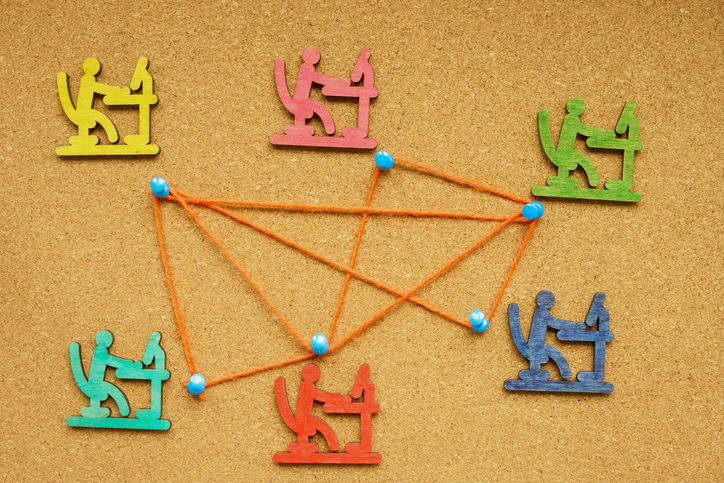It’s a cruel paradox—that the same outdated norm telling men to be strong discourages the strongest act of all: admitting to a problem and asking for help.
Across the world, millions of men are silently struggling with their mental health, afraid that speaking up will make them seem “less of a man.” But vulnerability takes real strength—and anyway should not be reduced to a gender norm. To be mentally well, one must be authentically oneself, and that starts with being open and honest about how one feels at all times. Bottling things up only leads to serious consequences, like the male mental health crisis seen today.
By mistaking silence for strength, society has made men powerless in the face of their struggles. But it’s never too late to change course—and redefine what it means to be strong.
By:
- Raising awareness about men’s mental health
- Investing in informed, targeted wellbeing support
- Creating psychologically safe work environments
employers can help turn the tide on men’s mental health, empowering men to speak up, seek help, and be themselves at work—and recognize the real courage it takes to lead an open, honest life.
Understanding the Crisis
In today’s world, “crisis” is a term that gets thrown around a lot to describe any number and severity of challenges—but in this case, its use is not hyperbolic. High suicide rates, co-morbid substance use disorders, and severe mental health symptoms reflect the scale and urgency of the challenges facing men.
Each year, suicide claims the lives of more than half a million men worldwide—nearly four times the rate among women—while research shows that men are:
- More than twice as likely to develop substance use disorders than women, often using drugs or alcohol to self-medicate underlying—and frequently undiagnosed—depression and anxiety
- Half as likely to access mental health services, with three in four men who need help going without
- Far less likely to talk to anyone—whether a friend, family member, or professional—about their mental health (60 percent compared with 83 percent of adults overall)
Most concerning are findings which suggest that the majority of men (70 percent) would rather wait until their mental health reaches a breaking point—until they experience suicidal or self-injurious thoughts, in other words—before seeking help.
These findings make it clear just how deeply the stigma surrounding men’s mental health and masculine ideals runs—that most men would rather live at war with their own minds than give up the façade of being the “strong, silent, self-sufficient” archetype that’s been fed to them for centuries.
The Workplace as a Catalyst for Change
As the place where such cultural norms take shape, the workplace serves as a key arena for challenging stigma and reshaping the narrative around men’s mental health. Achieving this requires a holistic approach—one that blends interpersonal, professional, and systemic support to help men heal, open up, and take better care of their emotional wellbeing.
The following are four ways organizations can deliver on that approach and support men’s mental health at work:
1. Start an ongoing dialogue.
The simplest yet most significant way leaders can change the conversation around men’s mental health is by talking about it. Men are more likely to open up when there’s already an open dialogue in place.
In practice, this means setting a strong example by showing vulnerability as leaders. This could include starting each meeting with an honest update about how one is feeling, sharing personal stories about a time when one was struggling and how support from friends, family, or a mental health professional helped, and conducting regular check-ins with male employees to offer guidance or support.
Such intimate conversations with leaders are impactful in two key ways. Among the top stressors affecting men’s mental health are often work and relationships. Younger men, in particular, face intense pressure to excel quickly in their careers, relying on no one but themselves to do so. This inevitably leads to feelings of inadequacy and isolation, contributing to the male loneliness epidemic making headlines today. Emotional support from leaders—especially male leaders—can help alleviate these stressors by giving men the chance to bond with and learn from someone they aspire to emulate, while also dispelling the notion that strength and sensitivity are somehow mutually exclusive.
When men observe leaders being open and authentic, it signals to them that vulnerability is not a weakness, but a common—if not requisite—trait of strong, capable, and resilient individuals. This, in turn, encourages men to speak more openly about their mental health and unlearn some of the harmful stereotypes that have kept them silent.
2. Train managers and peers to deliver informed, compassionate support.
Of course, facilitating these conversations and relationships requires emotionally intelligent leaders who can spot signs of distress and respond quickly with empathy and skill. That most men hide their mental health struggles makes it all the more critical that managers are able to proactively reach out rather than wait for employees to come forward.
Through leadership development tracks and ongoing guidance from solutions like Manager Assist, Workplace Options’ dedicated support program for managers, people leaders can learn how to recognize, reflect on, and respond to signs of risk or distress among their male team members—including early indicators of substance abuse, suicidal ideation, self-harm, and other serious mental health concerns.
On-demand learning modules and live workshops can further strengthen managers’ emotional intelligence, boost their confidence in supporting their teams, and enhance their ability to foster psychologically safe environments. Seminars such as “Strength in Vulnerability: Men’s Mental Health at Work,” Workplace Options’ free session in honor of International Men’s Day on November 19, for instance, can help leaders:
- Understand the unique challenges men face in the workplace
- Explore strategies for normalizing vulnerability and promoting help-seeking behaviors
- Identify actionable steps organizations and individuals can take to foster psychological safety and access support
Colleagues, too, can benefit from learning opportunities centered around emotional intelligence, empathy, and intervention skills. Given that the fear of what others will think is one of the leading reasons for men’s non-disclosure, building a strong network of supportive, informed peers is crucial to helping men open up and address their emotional health challenges.
With solutions like the WPO Wellbeing Ambassador Program, leaders can train exemplary peers to serve as visible champions of wellbeing and trusted first points of contact for their colleagues. This not only encourages men to take more proactive care of their mental health by witnessing their peers do the same, but also creates an informal, approachable pathway to support that feels safer and less stigmatized than turning to a manager or clinical service first.
3. Invest in wellbeing support that encourages utilization.
Just as wellbeing ambassadors can serve as a de-stigmatized pathway to care, so, too, can solutions that prioritize autonomy, accessibility, and personalization. This is particularly important given findings that most men are reluctant to engage with clinical models of care—highlighting the need for a broader, more flexible range of support.
With programs like Be Well at Work, In My Hands, and Wellness Coaching, organizations can deliver exactly that. These services help remove the stigma associated with a clinical-only model and inspire help-seeking by reinforcing choice, agency, and personal empowerment throughout the care-seeking process.
- With Be Well at Work—Workplace Options’ innovative single-point-of-contact solution—employees are empowered to reach out for help with any concern, confident that a trained specialist will work with them to accurately assess their needs and connect them to the most appropriate support, be that counseling, coaching, or another resource.
- For those deterred by traditional counseling modalities—such as telephonic or in-person sessions—In My Hands also provides a more autonomous support experience through self-managed, computer-based Cognitive Behavioral Therapy (cCBT), enabling individuals to access care “anytime, anywhere,” whether from the privacy of home, on the go, or in moments of acute need.
- Wellness Coaching complements these approaches by promoting mental wellbeing through a holistic lens—empowering individuals to strengthen their mental health through mindful choices, healthy habits, and balanced daily routines.
When men have access to support pathways that reinforce rather than undermine their self-sufficiency, they’re far more likely to use them. By focusing on all that the individual can do to support their mental health and wellbeing, these programs drive greater engagement and lasting improvements—challenging the belief that asking for help equates to helplessness, and repositioning it instead as a true act of strength.
4. Encourage healthier stress management and self-care habits.
On that note, the final step organizations can take to promote men’s mental health in the workplace is to help them cultivate a healthier relationship with self-care and stress management. Too often, maladaptive coping behaviors trap men in a vicious cycle of mental health challenges. Substance use, in particular, can exacerbate depression, anxiety, and chronic stress—despite often originating as a misguided attempt to relieve them.
That said, helping men build and sustain good mental wellbeing starts with helping them develop healthier ways of managing stress—and addressing or altogether preventing substance use issues that frequently co-occur with men’s mental health challenges.
Targeted solutions like Remedy and Workplace Options’ Tobacco Cessation Coaching enable organizations to deliver on this goal. By providing a safe, confidential space to explore their relationship with substances, examine underlying causes, and learn healthier coping strategies, these programs create a clear pathway to reclaiming control, fostering a healthier relationship with stress and substances, and achieving long-term wellbeing.
With more than two-thirds of men struggling to cope with “overwhelming stress,” offering these evidence-based, personalized support solutions has never been more critical. By encouraging men to think of self-care not as something effeminate but as an essential expression of strength, organizations empower men to take ownership of their mental health and reduce the risk of severe outcomes that disproportionately affect them today.
Tackling Stigma as the First Step Toward Change
While solving the male mental health crisis is not an overnight fix, addressing the stigma at its root is a critical first step toward meaningful improvement. Ultimately, the biggest threat to men’s wellbeing is the idea that it—and they—are untouchable; that not only is it an implication of weakness to seek help, but an anomaly to even need it. As a result, many men remain unaware of their own mental health struggles—often living not only in silence but in ignorance until those issues reach a tipping point.
To combat this, more support is needed that reframes self-care and mental health management as just two more components that make for a strong, self-sufficient individual. Encouraging men to simply pay attention to their mental health ultimately empowers them to recognize their needs and embrace support not as something they should strive not to need, but as something they already deserve.
When men feel confident in their worth and assured in their ability to care for themselves, that’s when stigma around mental health loses its hold, and seeking help no longer threatens their manhood, but affirms it. All it takes is support that can speak to the unique pressures they face and help reposition vulnerability as a display of fortitude rather than a moral failing.
Together, we can build a future where men feel seen, safe, and fully supported. Connect with Workplace Options to get started today.





































